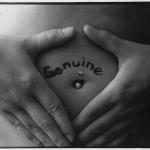When I started to present my work on Christianophobia, I ran into a fair amount of resistance. Most of the resistance was easily answered with the data I collected. For example, complaints about whether hatred of Christian is justified quickly fell away when I pointed out “jokes” about torturing Christians to death. In fact they sell merchandise with one such joke. It is difficult to justify that level of dehumanizing. Some argue that Christianophobia, which is an unreasonable hatred or anger towards Christians, does not exist but rather Christians are merely losing their privilege and being treated like everyone else. But given that the evidence that in academia individuals feel free to support anti-Christian occupational discrimination, it is hard to say that being denied a job due to religious bigotry is merely a loss of privilege.
But one of the more interesting objections is the argument that Christians are powerful and even if something like Christianophobia exists, it really does not matter. As a group Christians could withstand any hatred coming from non-Christians since they are a powerful majority in the United States. This is an interesting argument as clearly Christians outnumber any other religious group in our country. But do they have disproportionate power relative to those numbers? This objection relies on an assumption that Christians have enough group solidarity to trade on their social and political power. But is that the case?
To investigate, I ask a simple question. Do Christians have hatred for other Christians to the point that such group solidarity is a myth? Just as internalized racism moves blacks to perpetuate institutional racism, perhaps there are Christians who perpetuate Christianophobia? If that is the case, then the argument of Christian solidarity is overblown as well as the idea that Christians as a group act in ways to maintain their religious power. Yes, there are still areas of society where Christians have a strong social advantage, but the idea of a monolithic powerful religious group would be shattered.
Given that Christianophobia in the United States tends to be aimed at more theologically conservative Christians, I speculate that societal anti-Christian hatred would be more likely to be amongst progressive Christians. Indeed in talking with a colleague who interviewed both conservative and progressive Christians, she found that conservative Christians liked progressive Christians more than progressive Christians liked conservative Christians. So I decided to take a quick look at the 2016 American National Election Study (ANES) to see how many progressive Christians have animosity towards conservative Christians.
The way I measured anti-Christian hostility in my academic book on Christianophobia was with a series of thermometer questions. These questions allowed a respondent to indicate, on a scale of 0 to 100, how much they liked or did not like members of certain social groups. If an individual ranked fundamentalist Christians a standard deviation below their average rankings of racial and religious groups, then I designated that person as having hostility towards conservative Christians.
This technique allowed me to make a rough generalized assessment of who tends to have anti-Christian hostility. While this measure is not a direct assessment of theoretical Christianophobia, I used it to approximate the places in our society where Christianophobia is likely to exist. In the book I used the 2012 ANES. But for this project I will use the 2016 version of that survey. Furthermore, instead of comparing the score of Christian fundamentalists to a mean of thermometer scores of all religious and racial groups, I compared the score of Christian fundamentalists to a mean of thermometer scores for all other social groups.
Using this measure, I found that 29.9% of all Americans have anti-Christian hostility. This is a bit higher than the 16.4% of the population who are anti-Muslim according to these same techniques. It is not surpristing that 63.9% of atheists and agnostics have anti-Christian animosity making them the group most likely to exhibit such hostility. It is also not surprising that only 8.9% of Christians who believe the Bible is the word of God had such hostility. I defined Christians with such beliefs about the Bible as conservative Christians. They represent the group least likely to have hostility towards fundamentalist Christians, which is what I would expect since many in that group would likely define themselves as fundamentalist Christians.
So where do progressive Christians fit? Are they more akin to the high hostility exhibited by atheists or agnostics, or the lower hostility exhibited by conservative Christians? If we use belief of the Bible as the Word of God to determine who is a conservative and who is a progressive Christians, then I found that 30.6% of all progressive Christians have hostility towards fundamentalist Christians. This is about the same percentage as the general population as there is not significant difference between the two. Basically, progressive Christians are not more hostile to Christians than the rest of society, but neither are they less hostile. They share the same level of hostility towards Christians as others. Thus, their religious identity as Christian does not appear to move them away from hostility towards other Christians.
These results challenge the notion that Christians have an advantage as a group in the United States. Individual Christians may possess advantages due to their faith in certain areas of our society. But Christians are not a monolithic group that acts on its own self-interest. Sizeable portions of progressive Christians not only show little desire to unite with conservative Christians, but also their propensity to hate conservative Christians is indistinguishable from the rest of society. This lack of solidarity also takes away the notion that Christians have great power due to their numerical advantage. For that advantage to mean anything Christians must be willing to work together to gain or maintain their social power. My analysis indicates that this is not the case.
The fact that progressive Christians exhibit hatred towards conservative Christians at rates similar to the rest of society shows that Christians are not always safe from other Christians. Rather than simply count the number of Christians in the United States and assume that those numbers keep them safe, we are better off assessing when and where anti-Christian hostility is a problem. And part of that problem may be due to the attitudes of other Christians.
















